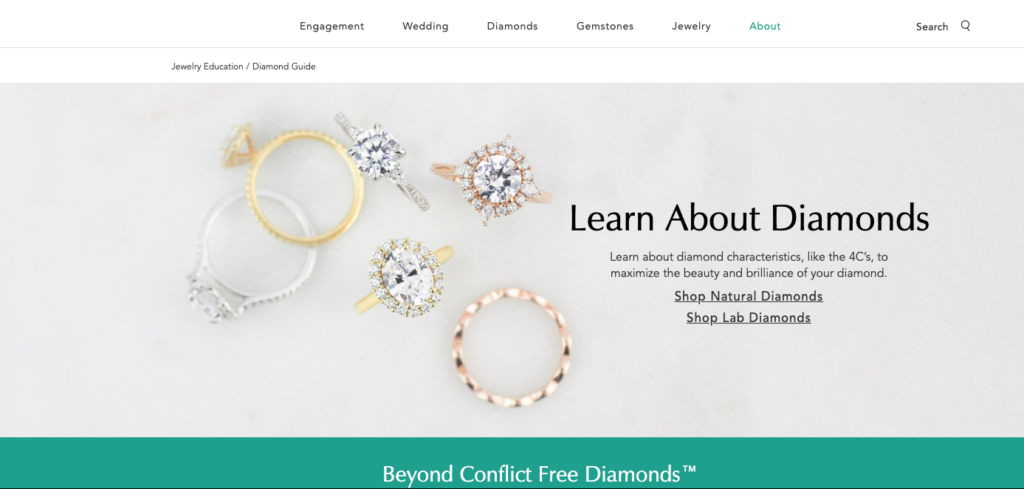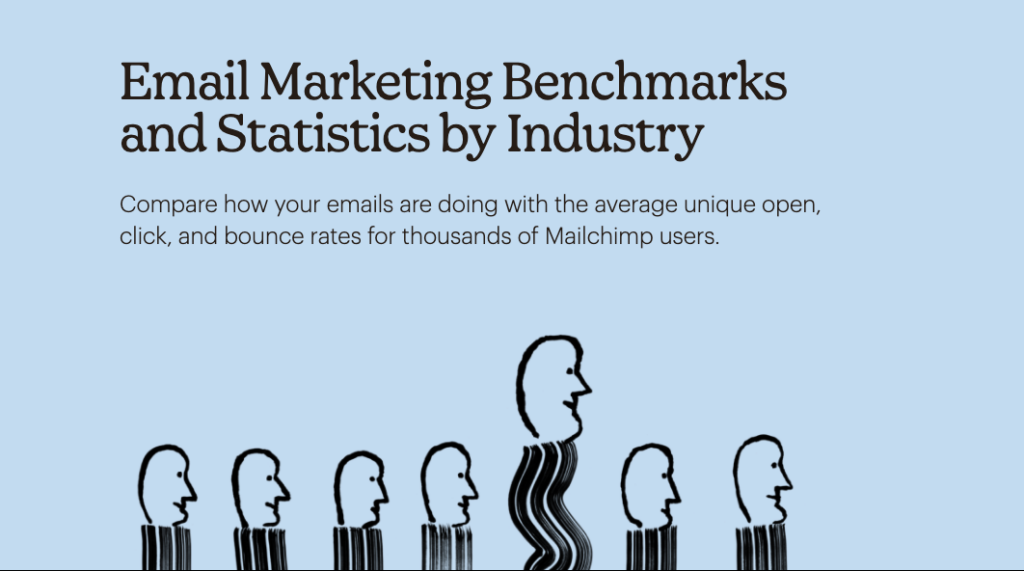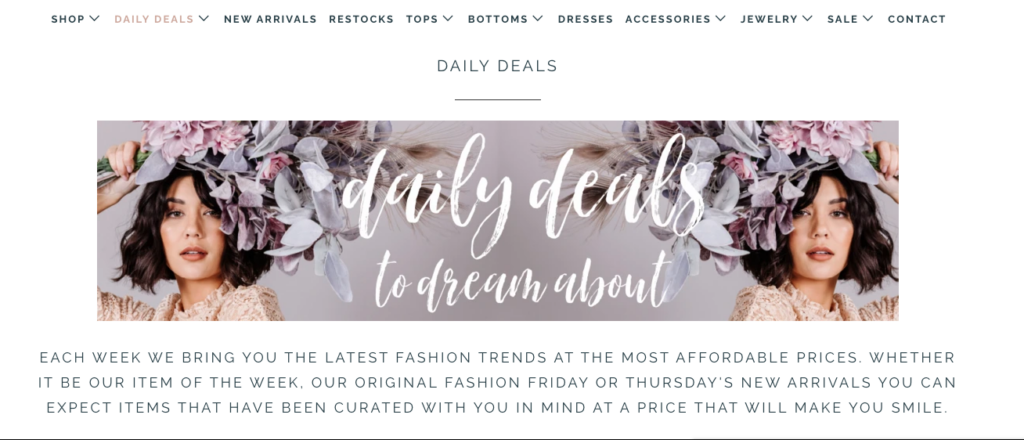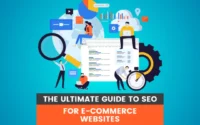Four Strategies for Building Ecommerce Links
Building Ecommerce: Although it can be difficult, link development for your e-commerce website is worthwhile. Watch your site grow as you implement these 4 tactics.
Any e-commerce site’s main objective, regardless of the goods, is to draw customers. Once on your page, visitors can browse your products and your thoughtfully created interface before making a purchase by clicking “add to basket.”
Figuring out how to bring them there is the difficult part.
Link building is one of the most crucial strategies for e-commerce business owners. You can attract readers through a variety of channels by producing worthwhile content and utilizing various link-building techniques.
You’ll discover four tried-and-true eCommerce link-building tactics in this article that will raise the search ranks of your eCommerce site. Put you in front of potential clients, and draw quality links. But first, let’s examine why link development is so crucial for e-commerce businesses.
How Links Help Business Goals in E-Commerce
Building Ecommerce: You can draw in a completely new group of visitors if your website features intriguing articles, illuminating images, exclusive resources, or other enticing content.
Even if these visitors aren’t necessarily looking to buy something, you can still turn them into consumers once they land on your page. Additionally, they improve your traffic just by viewing your website. They might also include links in their articles. Which promotes your company and draws more visitors to your website.
Additionally, you can network with other websites and media and persuade them to link to your content. Further enhancing the reputation of your website.
Customers today are turned off by overt branding and pushy marketing tactics. The greatest method to develop your brand and clientele is to produce content that encourages visitors to your website and inadvertently generates links to it.
As a result, you become more credible and recognized as an instructional resource rather than just a retailer. You can accomplish this goal with the use of link development. This is the procedure.
1. Give Your Clients Knowledge to Help Them
Building Ecommerce: In an education section, provide advanced materials and guides connected to your products. People who are knowledgeable feel more in control, and this is especially true for individuals who are considering making a purchase.
By including an education section on your website. You can prevent visitors who are looking for additional information before making a purchase from going elsewhere. They are more likely to make a purchase from you if they stay on your website.
An education area
An education area offers content that other people might connect to and aids in establishing you as a subject-matter authority. Consider the following informational piece from lab-grown diamond and jewelry shop Brilliant Earth:

The fundamentals of diamonds such as cut, color, and clarity as well as the company’s particular procedures are covered in this section. They contextualize their items by offering helpful general knowledge along with more specialized product details
Given that diamonds are a notoriously pricey product. This part also helps clients comprehend and justify the costs, increasing the possibility that they will make a purchase.
This page is a useful resource for linking to comparable websites in related industries. Such as wedding and fashion blogs.
An education section might also assist you in showcasing your qualifications and experience if your firm conducts its own study. The likelihood that other websites will link to your page increases with the uniqueness of your research.
For instance, Mailchimp gathered information on email open rates across all of its clients’ different industries.
They not only offer a valuable resource to link. But they also establish themselves as respectable thought leaders in their field

Giving clients as much information as you can help them feel good about their brand and themselves, which increases their likelihood of doing business with you.
Additionally, adding an education area strengthens your brand and facilitates link-building.
2. Examine Brand Mentions Not Connected
Building Ecommerce: Consider an unrelated brand mention as a chance. A possibility to contact the site’s host and propose a link insert exists on every page that has a word or phrase that could contextually link to one of the pages on your website.
Unlinked brand mentions provide an almost unmatched return on investment, making them an excellent strategy for eCommerce link building. All you have to do is ask for a website that has a mention that is available to link to your website.
Quickly bringing up viable site possibilities is possible with the help of tools like Ahrens. Your research should concentrate on the following four categories of brand mentions:
Thematic
Theme mentions are ones that don’t expressly refer to your business, a given product, or a certain brand but nonetheless make thematic or contextual sense.
For instance, even if it’s not overt. There is usually room for your link in an article about summertime activities if you offer pool equipment.
When tackled with rationality and caution. These changes can be quite profitable but call for a strong understanding of context.
Company
Finding a mention of your brand that does not already have a link to your website is like starting a race halfway through.
You can get in touch to inquire about including a link as long as the remark is not disparaging.
Product
Product mentions don’t specifically mention your business, but they do relate to a product you market.
These remarks are a wonderful way to gain backlinks if your product is relevant to the article’s overall theme.
Retail
Retail brand mentions have the potential to be the most effective strategy when done properly.
You have a relationship with one of the biggest and most popular brands in the world if your website offers Gucci merchandise or Gucci coupon codes, for instance.
All you have to do is get in touch with websites that use these or similar terms and ask them to connect explicitly to your merchandise or promotional offers.
Your website is now supported by a wide range of consumers looking for Gucci online.
3. Make use of research-based coupons and discounts
Building Ecommerce: According to studies, when individuals believe they are getting a deal, they are more inclined to make a purchase. Paying less for more makes consumers feel smart, and it’s always a good idea to foster a positive brand connection for your clients.
On special days (like Valentine’s Day) and events that show customers how much they are valued (like a customer’s birthday), Shopify advises employing coupon codes. Incentive coupons can also be given to new clients to encourage loyalty.
Offer various sorts and amounts of discounts, then monitor the purchases they lead to determine which strategies create the best results.
A discount presentation can frequently make all the difference. Dr. Jonah Berger, a marketing professor, and author studied what consumers think of as a “good deal,” and found that even though two discounts were functionally equivalent, consumers thought $500 off was a better deal than 25% off when buying a $2,000 computer.
You may determine which of your discount and coupon approaches is more enticing to your target audience by using A/B testing in this manner.
One thing to keep in mind is that you should avoid making bargains an essential component of your offering because sales may depend on clients who won’t purchase without a discount.
Affiliates & Coupon Codes
Building Ecommerce: Fashion store Cents of Style makes use of coupon codes by providing affiliates with special promotional codes and landing pages, who then append UTM code snippets to their URLs.

Using these special codes, Cents of Style can pinpoint precisely which affiliate is sending traffic their way, allowing them to monitor the effectiveness of their affiliate program.
Because they are aware that their clients will value receiving a discount. They also provide the affiliates with incentives to promote the website’s products.
If you have an affiliate program, think about working with influencers and providing them with exclusive offers to give to their followers. This gives off an air of exclusivity.
If your affiliates and their audiences are aware that they are receiving discounts that aren’t made available to the general public on other platforms. They will probably feel more inclined to spread the word as a way to demonstrate their insider status. They will receive more hits as a result, and you will also benefit.
Additionally, you can notify discount aggregator websites like Retainment, Honey, and Elates about newly released promo codes.
Before making a purchase, many customers scour these pages in quest of the best offers. By giving them access to your codes, you might get on that client’s radar.
4. Give things out for nothing!
Building Ecommerce: Is there anything consumers enjoy more than deals on goods?
Although giving free your own goods may seem paradoxical at first. Why would you do that when you’re attempting to sell it? – They are a great tactical tool for increasing brand sentiment and awareness.
Due to their excellent success rates. I even featured them in one of my SEJ Think-tank webinars.
There is no better method to get people enthusiastic about your business and even get some free publicity as long as you’re giving away a product that people will genuinely want.
A giveaway can be run through collaborations with influencers and bloggers, on your own website or social media, or both. Giveaways that involve partnerships are a fantastic way to grow your network and capitalize on other people’s social media followings.
Blogger Engagement
Building Ecommerce: Once you’ve made the decision to approach influencers and bloggers, you’ll need to select who to contact and how to do so. You must be as strategic as possible because many people with large social followings receive dozens, if not hundreds, of messages daily.
Find well-known bloggers in your industry that could be ready to collaborate with you by using a tool like BuzzSumo. To receive a list of popular articles centered on subjects relating to your product. You can do this by simply conducting a search for terms connected to your sector.
You’ll have a starting point for your search for potential partners once you have a feel of who is creating pertinent material.
Ask for a media kit from someone who appears like a good fit so you can understand who their audience is and how engaged they are. You can inquire about the prices if you like what you see.
Depending on who you connect with and the type of agreement you establish, the budget for an influencer/blogger collaboration might vary greatly. The majority of bloggers and influencers have their own fees and standards for giveaways. Which typically rely on their niche, impact, and audience size.
Remember that your relationship with them is reciprocal. Many bloggers and influencers enjoy hosting giveaways because of the increase in traffic and engagement they bring.
To get customers enthused about the offer and increase their likelihood of participating, they frequently pair it with a review of the company or product.
Here’s an illustration of a review and giveaway from an allergen-free cooking website for noodles:

Make sure you’re getting enough value for your money when you work with a blogger or influencer.
You may see exactly how the giveaway is affecting your traffic and purchases by encouraging them to use UTM links for analytics tracking. Additionally, you should make sure they adhere to FTC regulations and properly disclose your partnership in all pertinent information.
These link-building techniques work because they support your company on all fronts. These strategies will not only assist you in increasing traffic and building a solid clientele.
By displaying your expertise, dependability, and valuable connections with people in your industry. They will help enhance the reputation of your brand.
Create a hub of top-notch resources and reasonably priced. Custom-feeling solutions on your e-commerce website so it serves more purposes than just making quick purchases. Once your brand is well-known, you may watch your e-commerce website grow.


